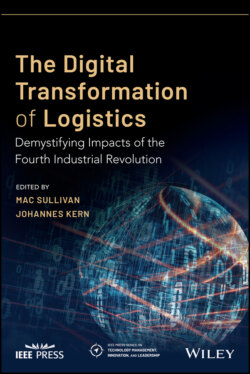Читать книгу The Digital Transformation of Logistics - Группа авторов - Страница 26
New Entrants Threaten Status Quo
ОглавлениеWhere larger outsourced logistics companies have already offshored many of their back‐office functions to shared service centers, there is now an effort to automate those same functions, and medium‐sized logistics companies now are directly comparing outsourcing with automation. As the cost of these documentation, coordination, and billing tasks, which had previously been done in the more expensive labor consumer nations, decreases, so will the margin on the overall price arbitrage. These previously low‐ and mid‐skill‐level positions who had been dependent on labor inputs will be offshored or automated.
Aggressive competition and agile startups will seize market share by reducing their selling rates. This is hypothetically made possible in highly automated and technologically savvy companies that have little overhead and a low marginal cost. It is also worth noting that startups chasing market share and revenue, while ignoring profitability in hopes of raising seed capital, have the potential to impact things as well. As an example, Morgan Stanley's analysis of Uber Freight, a platform designed to facilitate the movement of cargo by matching truck drivers with cargo owners, shows that Uber Freight is giving 99% of its revenue back to its throughput carriers and keeping only a 1% margin for itself (Aouad 2019). This is a prime example of how a hub economy, and in this case a sharing economy company, is crossing industry segments and threatening the role of domestic trucking brokers just as it did with the taxi industry.
The impacts of technology on logistics from a product perspective are worth examining. The US trucking industry, estimated at $700 billion, still uses “phone, fax, and email as primary methods of connecting”; however companies like Transfix are building online marketplaces to remove that inefficiency (McAfee and Brynjolfsson 2017). Since 2017, there has been a boom in companies offering the same services from Uber Freight to Next Trucking. Many warehousing companies sit on excess space in which Flexe, a Seattle‐based company, is looking to optimize by offering a platform for those companies to rent that space out (McAfee and Brynjolfsson 2017). The Neighbor application has taken that a step further, and now anyone can rent the extra space in their home (Holder 2019). These new products are causing major disruptions for logistics companies in the same way the Uber and Netflix have disrupted the transportation and television industries while also maintaining low overhead costs. These new entrants are pushing logistic companies to respond by increasing technological capabilities to offer similar products and customer experiences.
